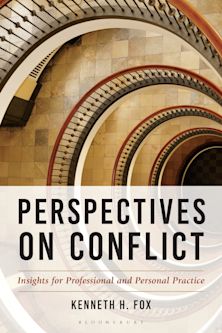Civic Education in the Twenty-First Century
A Multidimensional Inquiry
Civic Education in the Twenty-First Century
A Multidimensional Inquiry
This product is usually dispatched within 1 week
- Delivery and returns info
-
Free US delivery on orders $35 or over
Description
Imagine an America where politicians, governmental institutions, schools, new technologies, and interest groups work together to promote informed, engaged citizens. Civic Education in the Twenty-First Century brings together scholars from various disciplines to show how such a United States is possible today. Inspired by Alexis de Tocqueville’s analysis of American democracy in the early 1800s, this edited volume represents a multidimensional evaluation of civic education in its new and varied forms. While some lament a civics crisis in America today, Civic Education in the Twenty-First Century raises hope that we can have an informed and active citizenry. We find the activities of a number of politicians, government institutions, schools and interest groups as promising developments in the struggle to educate and engage Americans in their democracy. New technologies and new innovations in civic education have laid the foundation for a revitalized American civic ecology. With Civic Education in the Twenty-First Century, we call for the United States to make these practices less isolated and more common throughout the county.
The volume is broken into three major sections. First there are four chapters exploring the history and philosophical debates about civic education, particularly with respect to its role in America’s educational institutions. Then, the second section provides seven groundbreaking inquiries into how politicians and political institutions can promote civic education and engagement through their routine operations. As some examples, this section explores how politicians through campaigns and judiciaries through community programs enhance civic knowledge and encourage civic engagement. This section also explores how new technologies like the Internet and social media are increasingly used by government institutions and other entities to encourage a more politically informed and engaged citizenry. Finally, the third section contains six chapters that explore programs and practices in higher education that are enhancing civic education, engagement and our knowledge of them. From the virtual civics campus of Fort Hayes State to citizens’ academies throughout the country, this section shows the possibilities for schools today to once again be civics actors and promoters.
Table of Contents
Section I: The Case for Civic Education
Chapter 1: A Meta-History of Formal Civic Education: An Episodic History to be Repeated?, Michael T. Rogers
Chapter 2: It Can Work: The Surprisingly Positive Prospects for Effective Civic Education, Robert Maranto
Chapter 3: The Irony of Civic Education in the United States, Jeffrey D. Hilmer
Chapter 4: Models of Civic Education in America, Gary E. Bugh
Section II: 21st Century Innovations in Civic Education
Part A: National Government
Chapter 5: The Role of Congressional Outreach in Civic Engagement: An Examination of Legislator Websites, Sally Friedman and Jessica L. Aubin
Chapter 6: Encouraging Civic Participation through Twitter during (and after) the 2012 Election, Heather K. Evans
Chapter 7: Engagement through the Oval Office: Presidential Rhetoric as Civic Education, Sara A Mehltretter Drury and Jeffrey P. Mehltretter Drury
Part B: State and Local Government
Chapter 8: An Examination of Judicial Civic Education and Community Outreach Efforts, Brendan Toner
Chapter 9: The Civically Oriented Activities of Big City Mayors: The View from Website Press Releases, Michael A. Armato and Sally Friedman
Chapter 10: Encouraging Civic Participation of Citizens through County Websites: A Case Study of Arkansas, Barbara Warner
Part C: Private Institutions
Chapter 11: Interest Groups, Twitter, and Civic Education, Shamira Gelbman
Section III: Civic Education in Institutions of Higher Education
Part A: Classroom-based Studies
Chapter 12: Dude, Where’s the Civic Engagement? The Paradoxical Effect of Civic Education on the Probability of Civic Participation, Donald M. Gooch and Michael T. Rogers
Chapter 13: Educating Students about the National Debt: A Multiyear Study of Civic Education in the University Core Curriculum, Steven E. Galatas and Cindy Pressley
Chapter 14: Moving Civic Education Research Forward: The Inter-Campus Consortium for SoTL Research, J. Cherie Strachan and Elizabeth Bennion
Part B: Initiatives Beyond the Classroom
Chapter 15: Democratizing Information: Web 2.0 Tools at Fort Hays State University, Chapman Rackaway and Carolyn Campbell
Chapter 16: Teaching Local: Civic Engagement & Local Government, Mike Yawn
Chapter 17: Partnering with your Local PBS Station to Promote Civic and Political Engagement, Elizabeth Bennion
Conclusion, Donald M. Gooch
Product details
| Published | Sep 18 2015 |
|---|---|
| Format | Hardback |
| Edition | 1st |
| Extent | 528 |
| ISBN | 9780739193495 |
| Imprint | Lexington Books |
| Illustrations | 20 Graphs, 48 Tables |
| Dimensions | 9 x 6 inches |
| Publisher | Bloomsbury Publishing |



































